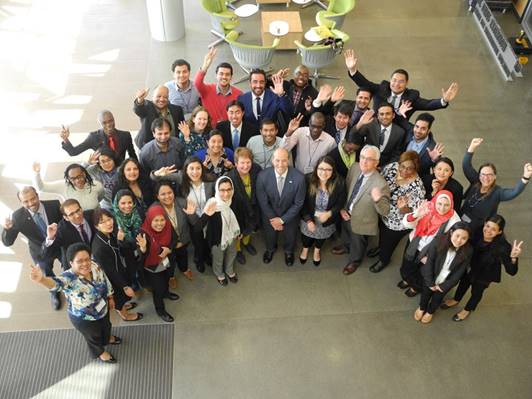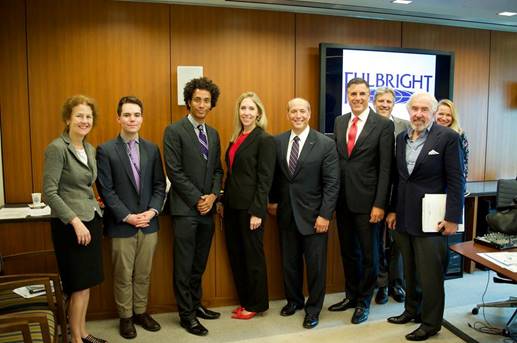James Morrissey, a 2011 alumnus of the Critical Language Scholarship Program (CLS), took a moment to share some insights with us about entrepreneurship and attending the Summit.
How did your experience in your exchange program inspire you as an entrepreneur?
Being overseas as part of the State Department's CLS program helped me realize how much I love constant learning and ambiguity. As I searched for more of both, I found that startups are a great fit for me.
In addition, because my co-founder and I both studied and lived overseas multiple times, and faced similar challenges as international students ourselves, we realized there was opportunity for schools to better support international students. This directly led to us starting our company, Shearwater, where our first product focused on helping schools better support international students in acclimating and expanding their comfort zone in a foreign environment, so that that can maximize their learning experiences.
You are now going to the Global Entrepreneurship Summit! What do you hope to accomplish while at the Summit?
I am excited to meet other entrepreneurs from all around the world, and to collaborate and learn from their diverse experiences. I’ve been very lucky to be part of a thriving startup community in Boston, and would love to help connect the resources of our network with other networks around the world.
Also, I’ve never been to India and have been trying to go for a long time, so I can't wait to explore Hyderabad, its culture, and its local foods.
The theme of GES is "Women First, Prosperity for All." What does the phrase "Women First, Prosperity for All" mean to you?
Entrepreneurship is such an essential part of a thriving economy and culture. However, I believe there is a gap—women may not have equal access to the resources and mentorship that help lead to successful ventures. My mother immigrated from Taiwan and, when I was a child, she started a small business which ultimately failed. I know that she would have benefited from more guidance, and that she did not have the same access to resources that I do today. I think there is an opportunity to better support female entrepreneurs with those resources, which would create more diversity in companies, leading to increased innovation and more prosperity for all. One such resource is mentorship. At my company, Shearwater, we partner with a number of universities to provide mentorship to at-risk students, including women in STEM.
Mentorship helps these students graduate on time, develop important skills such as self-efficacy and leadership, and enhance their career trajectories, leading to more prosperity for all.










